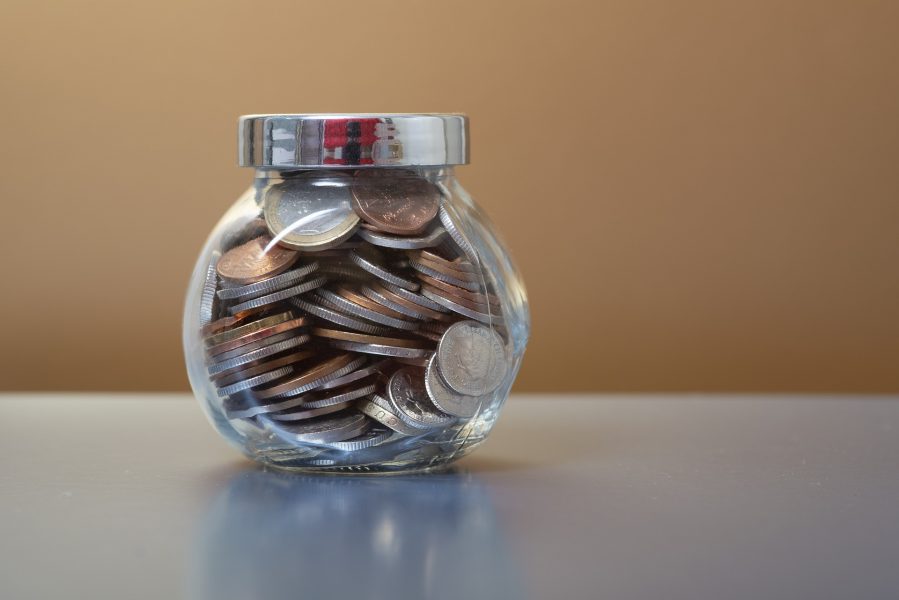5 steps to help you better manage your finances and avoid falling into debt
There is a misconception that those who are in debt liven a lavish and luxurious lifestyle. However, this is far from the reality. Most commonly households fall into debt due to redundancy and unemployment. Debt causes a lot of damage, not only financially but physically and mentally.
More than ever before, households are in drowning in debt, struggling to pay their bills and make ends meet. The pandemic has further exacerbated a soaring debt problem in the UK. It is estimated that more than “6 million UK adults have fallen behind on at least one household bill during the pandemic.” The pandemic has pushed people into debt that will take them years to get out of.
HHUGS families are sadly no stranger to debt. Many find their basic needs are not covered by benefits, others may have their assets frozen or accounts closed. Further still may have had their hours reduced in the pandemic or lost their jobs altogether.
“They helped me with rent payments, without which we would be homeless. They paid for food and Winter clothing. I had so much debt when I contacted HHUGS but they helped me pay off my rent arrears, my water bill and my council tax arrears, which lifted a huge burden off my shoulders.”
Our faith teaches us the long term repercussions of debt, and the grave impact it has on the believer.
“The soul of the believer is suspended because of his debt until it is paid off.” (at-Tirmidhi)
Debt causes the individual to feel humiliated and disgraced. In desperation, it leads to other harmful actions.
“When a man gets into debt, he speaks and tells lies, and he makes a promise and breaks it.” al-Bukhaari (832) and Muslim (589).
Debt Awareness Week takes place on the 22nd to 28th of March 2021. It aims to raise awareness of the support available for those in debt, and reduce stigma around debt, allowing people to talk freely and any financial issues they may be facing.
Although you may not be in debt, you may be facing some financial difficulty in this pandemic. Many people have been furloughed, made redundant, or have had to change careers, resulting in a shift in their financial situation. This can be troubling, and you may be worried about the uncertainty you and your family face in the months ahead. To help you better manage your finances and avoid getting into debt we have prepared for you:
5 steps to help you better manage your finances and avoid falling into debt:
1.Focus on wants rather needs: If you are struggling financially, then it’s time to cut down on unnecessary spending costs. Focus more on what you need, rather than what you want. For example, you may begin by cutting down on your cheeky takeaways and instead cook more often at home. Limit how much you are spending online, and avoid being tempted by not visiting the websites which often reel you in. Ask yourself before you make a purchase whether it is essential. If not then do not buy it, this will drastically improve your financial situation.
2. Make budgets your best friend: Learning how to budget and being able track where your money is going will allow you to be in better control of your finances. If you are not aware of your outgoing expenditure you may be spending more than you should. However, if you allocate a budget to all the necessities within your life such as groceries and bills, you will be aware of your monthly expenditure. If thereafter, you need to cut down on certain areas you can a more informed decision as you are more in control of our expenses.
3. Save for a rainy day: We have all heard of the saying a ‘rainy-day’ fund however not many of us have one. It is important to have an emergency fund in case your financial circumstances change. Although this may not be possible for everyone, if you can put something aside each week or month, then do so. As this will ultimately add up in the long term, giving you an emergency pot to dip into if the need ever arises.
4. Spend within your means: Although the concept of credit cards, and zero percent interest credit is a dream come true for shoppers, it can also cause huge financial problems if not managed correctly. From an Islamic perspective, due to interest credit cards should not be taken out, however for some it may be unavoidable. Ensure that you take care to set up a direct debit and never miss a payment. In this pandemic, many have lost their jobs and are unable to keep up with monthly repayments. You should limit the amount of credit cards you own, and avoid buying items on finance if possible. It is sensible to spend within your means, as this prevents any long term financial pressure.
5. Ask for help: It is within our nature to not speak about money. A topic which doesn’t come up at dinner tables or during a casual conversation. Therefore, you may find it difficult to reach out to someone if you are facing financial difficulty. However, there should be no shame attached to reaching out for help. Your situation can change overnight, and no one is exempt from financial hardship. Therefore, if you are struggling then reach out to a loved one. If possible, always try to negotiate instalment payments and set those up, before it gets out of hand. However, if you would like to speak to someone else, then there are many charities and organisations that can help.
“The one who takes people’s wealth intending to pay it back, Allah will pay it back for him.” (Bukhari)
Trust in Allah
Allah is al-Razzaq (the Ultimate Provider). He can provide for you when no one else can. Put your trust in Him and He will provide a way for all your difficulties.
“And whoever fears Allah, He will make for him a way out and will provide for him from where he does not expect. And whoever relies upon Allah, then He is sufficient for him.” 65: 2-3)
There are du’as the Prophet (saw) specifically shared for the one burdened by debt to alleviate their hardship.
1.“Abu Salih used to tell us, when one of us wanted to sleep, to lie down on his right side and say: “Allaahumma Rabb al-samawaati wa’l-ard wa Rabb al-‘arsh il-‘azeem, Rabbaanaa wa Rabba kulli shay’in, Faaliq al-habb wa’l-nawa wa munzil al-Tawraati wa’l-Injeeli wa’l-Furqaan, a’oodhu bika min sharri kulli shay’in anta aakhidhun bi naasiyatihi. Allaahumma anta al-awwal fa laysa qablaka shay’un, wa anta al-aakhir fa laysa ba’daka shay’un, wa anta al-zaahir fa laysa fawqaka shay’un wa anta al-baatin fa laysa doonaka shay’un. Iqdi ‘annaa al-dayna wa aghninaa min al-faqri”
O Allah, Lord of the seven heavens and the exalted Throne, our Lord and Lord of all things, splitter of the seed and the date-stone, Revealer of the Torah and Injeel (Bible) the Furqan [Qur’an], I seek refuge in You from the evil of all things You shall seize by the forelock [have total mastery over]. O Allah, You are the First so there is nothing before You, and You are the Last so there is nothing after You. You are the Greatest and Highest so there is nothing above You, and You are the One Aware of the Subtlest Secrets so there is nothing closer than You. Settle our debt for us and spare us from poverty).” (Muslim)
2. It was narrated from ‘Ali (may Allaah be pleased with him) that a mukaatib (slave who had entered into a contract of manumission) came to him and said: “I am unable to pay off my manumission; help me.” He said: “Shall I not tell you some words which the Messenger of Allah (saw) taught me? And if you have debt like the mountain of Seer, Allah will pay it off for you. He said: ‘Say: Allaahumma akfini bi halaalika ‘an haraamika wa aghnini bi fadlika ‘amman siwaaka (O Allaah, suffice me with what You have permitted so that that I have no need of that which You have forbidden, and make me independent of means by Your bounty so that I have no need of anyone besides You).’” (at-Tirmidhi)
3. The Messenger of Allah (saw) said “Shall I not teach you some words which, if you say them, Allah will take away your worries and pay off your debts?”
“Say, morning and evening, ‘“Allahumma inni a’oodhu bika min al-hammi wa’l-hazani, wa a’oodhi bika min al-‘ajzi wa’l-kasali, wa a’oodhu bika min al-jubni wa’l-bukhli, wa a’oodhi bika min ghalabat il-dayn wa qahri al-rijaal”
(O Allah, I seek refuge with You from worry and grief, and I seek refuge with You from incapacity and laziness, and I seek refuge with You from cowardice and miserliness, and I seek refuge with You from being heavily in debt and from being overcome by men).” Abu Umamah said: “I did that, and Allah took away my worry and paid off my debt.” (Abu Dawud)
For more help:
If you have been affected by counter-terror measure and are suffering from debt or financial instability contact HHUGS, to help alleviate your debts or loan.
StepChange Debt Charity
StepChange is the UK’s most comprehensive debt advice service. They help people
with debt problems take back control of their finances and their lives.
Contact them at: 0800 138 1111
Monday to Friday 8am to 8pm and Saturday 8am to 4pm
Or visit their website


